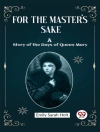In ‘The Severed Hand, ‘ Wilhelm Hauff weaves a gripping tale that deftly combines elements of the Gothic and the fairy tale tradition, showcasing his unique narrative style characterized by rich, vivid imagery and psychological depth. Set against the backdrop of early 19th-century Germany, this novella explores themes of fate, morality, and the supernatural, as it recounts the harrowing story of a hapless protagonist who encounters a heinous crime—one that involves a severed hand and the potency of curses. Hauff’s incorporation of folkloric motifs, alongside a meticulously crafted suspenseful plot, encourages readers to consider the ambiguity of good and evil in human nature, revealing the complex interplay between light and darkness. Wilhelm Hauff, a product of his time, was deeply influenced by Romanticism and the burgeoning interest in folklore and the uncanny. His experiences as a poet and writer of the early 19th century, a period marked by emerging national identity and a fascination with myth, informed his storytelling approach in ‘The Severed Hand.’ The novella serves as an embodiment of Hauff’s intent to meld entertaining storytelling with deeper moral reflections, inspired by his own tumultuous life and the cultural dynamics surrounding him. This captivating tale is recommended for readers with an appreciation for dark, psychological narratives that echo the complexities of human experiences. Hauff’s masterful writing invites you to immerse yourself in a spellbinding world where moral dilemmas take center stage, making ‘The Severed Hand’ an essential read for fans of Gothic literature and fairy tales alike.
เกี่ยวกับผู้แต่ง
Wilhelm Hauff was a German poet and novelist born on November 29, 1802, in Stuttgart, and his literary career, though brief, had a significant impact on the German Romantic movement. He attended the University of Tübingen where he studied theology and philosophy, but his passion for storytelling quickly became evident through his writings. Hauff’s style is characterized by his vivid imagination and the blend of the fantastical with the real, often weaving folklore with satirical elements. His works often reflect the influence of the Arabian Nights, which inspired some of his most memorable fairy tales and adventure stories. ‘The Severed Hand’ is one such tale, encapsulating Hauff’s talent for creating eerie and enchanting narratives that captivate the reader. Though his life was tragically cut short when he died of typhus at the age of 24, on November 18, 1827, Hauff left behind a treasure trove of literature, including ‘Lichtenstein’ (1826), a historical novel which contributed to the Romanticism of the Swabian past, and ‘Phantasien im Bremer Ratskeller’ (1827), a collection of fantastical short stories. His legacy endures in the rich tapestry of German literature, and ‘The Severed Hand’ remains a testament to his distinctive style and imaginative prowess.












